#Stuart Hancock
Explore tagged Tumblr posts
Text


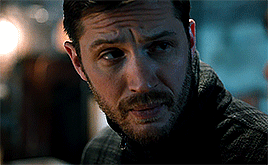

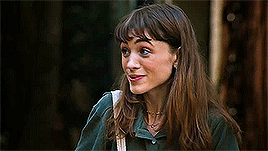
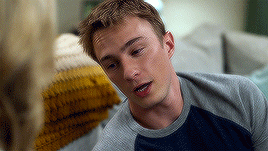
new muse alert (because i have no self control of course) allison stuart (dianna agron, nature tour guide, bisexual) echo hancock (ellie bamber, nanny, queer) lev federov (tom hardy, son of koschei, bisexual) mina afshar (sarah shahi, housewife, bisexual) claire leigh (natalia dyer, history major, pansexual) boone leigh (drew starkey, weed dealer, homosexual) (as per usual, like this post for a starter from one of these new muses. note: claire and boone are returning siblings.)
4 notes
·
View notes
Text
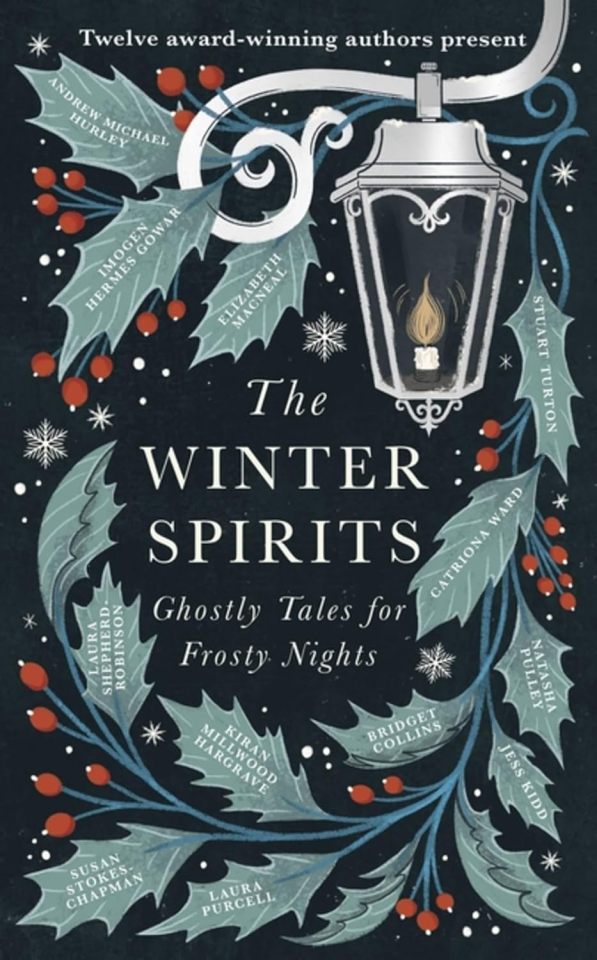
FROM THE CREATORS OF THE HAUNTING SEASON COMES A DAZZLING COLLECTION OF NEVER-BEFORE-SEEN GHOSTLY TALES. 'Terrific - every bit as good as an MR James collection' ROSIE ANDREWS, author of THE LEVIATHAN Featuring new and original stories from: Bridget Collins, author of The Binding Imogen Hermes Gowar, author of The Mermaid and Mrs Hancock Kiran Millwood Hargrave, author of The Mercies Andrew Michael Hurley, author of The Loney Jess Kidd, author of Things in Jars Natasha Pulley, author of The Watchmaker of Filigree Street Elizabeth Macneal, author of The Doll Factory Laura Purcell, author of The Silent Companions Susan Stokes-Chapman, author of Pandora Laura Shepherd-Robinson, author of The Square of Sevens Stuart Turton, author of The Seven Deaths of Evelyn Hardcastle Catriona Ward, author of The Last House on Needless Street The tradition of a haunted tale at Christmas has flourished across the centuries. These twelve stories - authored by some of today's most loved and lauded writers of historical and gothic fiction - are all centred around Christmas or Advent, boldly and playfully re-imagining a beloved tradition for a modern audience. Taking you from a haunted Tuscan villa to a remote Scottish island with a dark secret,, these vibrant haunted stories are your ultimate companion for frosty nights. So curl up, light a candle, and fall under the spell of winters past . . . 'I absolutely devoured The Winter Spirits. Every story is a gem' LAURA SHEPPERSON 'Another dazzling collection. Chilling, moving and incredibly satisfying' AMANDA MASON 'Eerily macabre, hauntingly propulsive' JOANNE BURN
buy here
10 notes
·
View notes
Text
Veteran British born/based film/TV actors born before and including 1937 still alive:
With the recent death of Dame Maggie Smith, I thought I'd detail the legendary actors of UK cinema and television that are still living.
Beulah Garrick (b. 1921)
Elizabeth Kelly (b. 1921)
Elisabeth Kirkby (b. 1921)
Annabel Maule (b. 1922)
Paul Harding (b. 1923)
Vincent Ball (b. 1923)
David Lawton (b. 1923)
Anne Vernon (b. 1924)
Laurie Webb (b. 1924)
Thelma Ruby (b. 1925)
Pete Murray (b. 1925)
Michael Beint (b. 1925)
Shelia Mitchell (b. 1925)
April Stride (b. 1925)
David Attenborough (b. 1926)
Elizabeth Benson (b. 1926)
Margaret Barton (b. 1926)
Terry Kilburn (b. 1926)
Stanley Baxter (b. 1926)
David Frankham (b. 1926)
William Glover (b. 1926)
Josephine Stuart (b. 1926)
Patricia Davidson (b. 1926)
Glen Michael (b. 1926)
Araby Lockhart (b. 1926)
Eileen Page (b. 1926)
Rosemary Harris (b. 1927)
Cleo Laine (b. 1927)
Neville Phillips (b. 1927)
Jean Lodge (b. 1927)
Barbara Ashcroft (b. 1927)
Jill Freud (b. 1927)
Jean Southern (b. 1927)
Antonia Pemberton (b. 1927)
Peter Cellier (b. 1928)
Jeanette Landis (b. 1928)
Sheila Ballantine (b. 1928)
Dorothea Phillips (b. 1928)
Hazel Ascot (b. 1928)
Brenda Hogan (b. 1928)
Raymond Llewelyn (b. 1928)
Pauline Brailsford (b. 1928)
Leonard Weir (b. 1928)
Kevin Scott (b. 1928)
Sylvia Wynter (b. 1928)
Patricia Routledge (b. 1929)
Colin Jeavons (b. 1929)
Michael Craig (b. 1929)
Thelma Barlow (b. 1929)
Peter Myers (b. 1929)
Paul Williamson (b. 1929)
Phillip Ross (b. 1929)
Jimmy Fagg (b. 1929)
Hazel Phillips (b. 1929)
Mignon Elkins (b. 1929)
Margaret Stallard (b. 1929)
Maya Koumani (b. 1929)
Roy Evans (b. 1930)
Una McLean (b. 1930)
Roddy Maude-Roxby (b. 1930)
Ruth Trouncer (b. 1930)
Vera Frances (b. 1930)
Gary Watson (b. 1930)
Keith Alexander (b. 1930)
Pauline Jefferson (b. 1930)
Sheila Shand Gibbs (b. 1930)
Shirley Abicair (b. 1930)
Elizabeth Bainbridge (b. 1930)
Claire Bloom (b. 1931)
Leslie Caron (b. 1931)
Carroll Baker (b. 1931)
Virginia McKenna (b. 1931)
Vivian Pickles (b. 1931)
Stanley Meadows (b. 1931)
Gerald Harper (b. 1931)
Patricia Greene (b. 1931)
Ellen McIntosh (b. 1931)
Maureen Connell (b. 1931)
June Laverick (b. 1931)
Denyse Alexander (b. 1931)
Arthur Nightingale (b. 1931)
Eileen Derbyshire (b. 1931)
Carl Held (b. 1931)
Shelia Bernette (b. 1931)
Corinne Skinner-Carter (b. 1931)
Tusse Silberg (b. 1931)
John Swindells (b. 1931)
Petula Clark (b. 1932)
Prunella Scales (b. 1932)
Phyllida Law (b. 1932)
Ray Cooney (b. 1932)
Edward De Souza (b. 1932)
Alan Dobie (b. 1932)
John Turner (b. 1932)
Gabriel Woolf (b. 1932)
Johnnie Wade (b. 1932)
Eileen Moore (b. 1932)
Laurie Leigh (b. 1932)
William Roache (b. 1932)
Athol Fugard (b. 1932)
Carmen Munroe (b. 1932)
Norman Bowler (b. 1932)
Marcia Ashton (b. 1932)
Thelma Holt (b. 1932)
Sally Bazely (b. 1932)
Ronald France (b. 1932)
Edwina Carroll (b. 1932)
Libby Morris (b. 1932)
Michael Caine (b. 1933)
Joan Collins (b. 1933)
Sian Phillips (b. 1933)
Sheila Hancock (b. 1933)
Elizabeth Seal (b. 1933)
Shani Willis (b. 1933)
Patrick Godfrey (b. 1933)
Caroline Blakiston (b. 1933)
Donald Douglas (b. 1933)
Ann Firbank (b. 1933)
Vera Day (b. 1933)
Tsai Chin (b. 1933)
Geoffrey Frederick (b. 1933)
Marla Landi (b. 1933)
Monte Landis (b. 1933)
Mary Germaine (b. 1933)
Ruth Posner (b. 1933)
Barbara Archer (b. 1933)
W.B. Brydon (b. 1933)
Robert Gillespie (b. 1933)
Brian Patton (b. 1933)
Arthur White (b. 1933)
Barbara Archer (b. 1933)
Sally Bazley (b. 1933)
Madhur Jaffrey (b. 1933)
Jeanette Sterke (b. 1933)
Ann Rogers (b. 1933)
Barbara Knox (b. 1933)
John Boorman (b. 1933)
Derek Martin (b. 1933)
Michael Aspel (b. 1933)
Bill Edwards (b. 1933)
Ninette Finch (b. 1933)
Una Kay (b. 1933)
Pat Galloway (b. 1933)
David Sumner (b. 1933)
Rhoda Lewis (b. 1933)
Judi Dench (b. 1934)
Eileen Atkins (b. 1934)
Tom Baker (b. 1934)
Alan Bennett (b. 1934)
Annette Crosbie (b. 1934)
Wendy Craig (b. 1934)
Millicent Martin (b. 1934)
John Standing (b. 1934)
Vernon Dobtcheff (b. 1934)
Nanette Newman (b. 1934)
David Burke (b. 1934)
Geraldine Newman (b. 1934)
Renny Lister (b. 1934)
Priscilla Morgan (b. 1934)
Audrey Dalton (b. 1934)
Leila Hoffman (b. 1934)
Simone Lovell (b. 1934)
Magda Miller (b. 1934)
Robert Aldous (b. 1934)
Ram John Holder (b. 1934)
Jamila Massey (b. 1934)
Margaretta D’Arcy (b. 1934)
Leslie Saeward (b. 1934)
Maurice Podbrey (b. 1934)
Steve Emerson (b. 1934)
Peter Bland (b. 1934)
Michael Darlow (b. 1934)
Barbara Archer (b. 1934)
Joy Webster (b. 1934)
Jacqueline Ellis (b. 1934)
Jacqueline Jones (b. 1934)
Diana Payan (b. 1934)
Gillian Eddison (b. 1934)
Suzanne Lloyd (b. 1934)
Gilbert Wynne (b. 1934)
Jean Challis (b. 1934)
Gillian Knight (b. 1934)
Julie Andrews (b. 1935)
Julian Glover (b. 1935)
Jim Dale (b. 1935)
Anne Reid (b. 1935)
James Bolam (b. 1935)
Christina Pickles (b. 1935)
Judy Parfitt (b. 1935)
Wanda Ventham (b. 1935)
Amanda Barrie (b. 1935)
Derren Nesbitt (b. 1935)
Nadim Swalha (b. 1935)
Gary Raymond (b. 1935)
Janet Henfrey (b. 1935)
Melvyn Hayes (b. 1935)
Susan Engel (b. 1935)
Amanda Walker (b. 1935)
Delena Kidd (b. 1935)
Derek Partridge (b. 1935)
Allister Bain (b. 1935)
Derry Power (b. 1935)
Phyllis MacMahon (b. 1935)
Rowena Cooper (b. 1935)
Lisa Gastoni (b. 1935)
Derek Partridge (b. 1935)
Jill Dixon (b. 1935)
Des Keough (b. 1935)
Barbara Angell (b. 1935)
Lucille Soong (b. 1935)
Anita West (b. 1935)
June Watson (b. 1935)
David Daker (b. 1935)
Shirley Cain (b. 1935)
Bobby Pattinson (b. 1935)
George Roubicek (b. 1935)
Glenn Beck (b. 1935)
Shirley Greenwood (b. 1935)
Isabella Rye (b. 1935)
Anna Barry (b. 1935)
David Andrews (b. 1935)
Michael Danvers-Walker (b. 1935)
Alibe Parsons (b. 1935)
Brian Blessed (b. 1936)
Richard Wilson (b. 1936)
Tommy Steele (b. 1936)
Edward Petherbridge (b. 1936)
Ursula Andress (b. 1936)
John Leyton (b. 1936)
Jess Conrad (b. 1936)
Elizabeth Shepherd (b. 1936)
Sandra Voe (b. 1936)
Engelbert Humperdinck (b. 1936)
Doug Sheldon (b. 1936)
John Golightly (b. 1936)
Peter Ellis (b. 1936)
Andria Lawrence (b. 1936)
Jon Laurimore (b. 1936)
Tony Scoggo (b. 1936)
Barry MacGregor (b. 1936)
Frank Barrie (b. 1936)
Kenneth Farrington (b. 1936)
Rhys McConnochie (b. 1936)
Eileen McCallum (b. 1936)
Frederick Pyne (b. 1936)
Marian Diamond (b. 1936)
Anthony Higginson (b. 1936)
Elsie Kelly (b. 1936)
Ann Taylor (b. 1936)
Heidi Erich (b. 1936)
Keith Faulkner (b. 1936)
Ruth Meyers (b. 1936)
Julia Blake (b. 1936)
Heather Downham (b. 1936)
Robin Gammell (b. 1936)
Auriol Smith (b. 1936)
Frances White (b. 1936)
Diana Davies (b. 1936)
Fred Pearson (b. 1936)
Joan Hooley (b. 1936)
Elric Hooper (b. 1936)
Mairin O’Donovan (b. 1936)
Anthony Hopkins (b. 1937)
Edward Fox (b. 1937)
Vanessa Redgrave (b. 1937)
Tom Courtenay (b. 1937)
Steven Berkoff (b. 1937)
Susan Hampshire (b. 1937)
Barbara Steele (b. 1937)
Shirley Eaton (b. 1937)
Kenneth Colley (b. 1937)
Ian Hogg (b. 1937)
Sheila Reid (b. 1937)
Valerie Singleton (b. 1937)
Suzy Kendall (b. 1937)
Tom Georgeson (b. 1937)
Alan Rothwell (b. 1937)
Michael Knowles (b. 1937)
Jocelyn Lane (b. 1937)
Michael Kilgarriff (b. 1937)
Paul Collins (b. 1937)
Anna Dawson (b. 1937)
Marlene Sidaway (b. 1937)
Jeremy Spenser (b. 1937)
Freddie Davies (b. 1937)
Justine Lord (b. 1937)
Davyd Harries (b. 1937)
Hugh Futcher (b. 1937)
Anne Cunningham (b. 1937)
Anne Aubrey (b. 1937)
Vic Taliban (b. 1937)
Dorothy Paul (b. 1937)
Denis Tuohy (b. 1937)
Claire Neilson (b. 1937)
Patricia Collins (b. 1937)
Jan Waters (b. 1937)
Dorothy Paul (b. 1937)
Brian Grellis (b. 1937)
Kenneth Alan Taylor (b. 1937)
Yvonne Buckingham (b. 1937)
Eileen Helsby (b. 1937)
Ray Donn (b. 1937)
Terrence Scammell (b. 1937)
Pauline Devaney (b. 1937)
Rosie Bannister (b. 1937)
Jeanne Roland (b. 1937)
William Gaunt (b. 1937)
Rosaleen Linehan (b. 1937)
Norman Coburn (b. 1937)
Rosie Bannister (b. 1937)
Luciana Paluzzi (b. 1937)
Roy Wordsworth (b. 1937)
Kate Binchy (b. 1937)
#dannyreviews#uk#british actors#judi dench#eileen atkins#rosemary harris#brian blessed#julie andrews#michael caine#joan collins#petula clark#david attenborough#carroll baker#claire bloom#tom baker#ursula andress#anthony hopkins#vanessa redgrave#tom courtenay#edward fox
8 notes
·
View notes
Text
Neutralised (1994) [3/?]: My Version of The Shared Universe
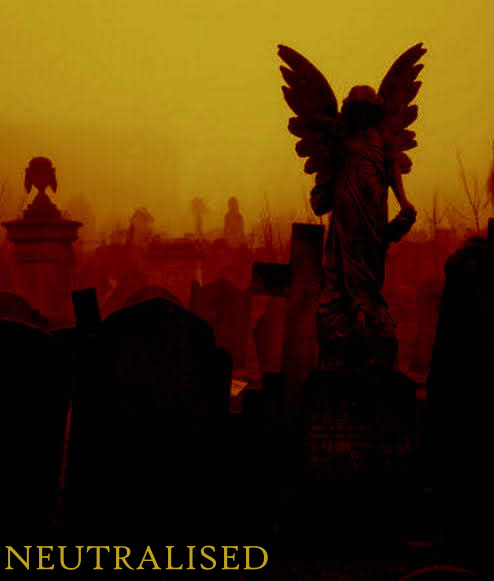
For those of you unfamiliar with 'Chicago Hope', it was actually set in a shared universe. Also, 'Suspiciously Similar' characters will be involved (Due to actors playing multiple roles). This is my take on that:
Shows:
Chicago Hope
Homicide: Life on the Street
Law & Order
Neutralised
Oz
Picket Fences
characters (I'm not listing anyone who was in 20 episodes or less) under the cut. Also technically these are not all the characters as I'm still writing stuff.
Chicago Hope - Characters (& Actors):
Doctor Aaron Shutt (Adam Arkin)
Doctor Phillip Watters (Hector Elizondo)
Doctor William 'Billy' Kronk (Peter Berg)
Doctor Dennis Hancock (Vlondie Curtis-Hall)
Doctor Diane Grad (Jayne Brook)
Doctor Keith Wilkes (Rocky Carroll)
Doctor Jack McNeil (Mark Harmon)
Doctor Daniel Nyland (Thomas Gibson)
Doctor Jeffrey Geiger (Mandy Patinkin)
Nurse Camille Shutt (Roxanne Hart)
Doctor Lisa Catera (Stacy Edwards)
Alan Birch (Peter MacNicol)
Doctor Joseph Cacaci (Bob Bancroft)
Doctor Robert Yeats (Eric Stoltz)
Doctor Gina Simon (Carla Gugino)
Doctor Jeremy Hanlon (Lauren Holly)
Doctor Francesca Alberghetti (Barbara Hershey)
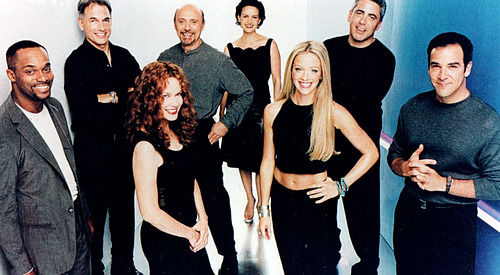
Homicide: Life on the Street - Characters (& Actors)
Detective John Munch (Richard Belzer)
Detective Meldrick Lewis (Clark Johnson)
Lieutenant Alphonse Giardello (Yaphet Kotto)
Detective Tim Bayliss (Kyle Secor)
Detective Frank Pembleton (Andre Braugher)
Detective / Sergeant Kay Howard (Melissa Leo)
Detective Mike Kellerman (Reed Diamond)
Officer/Detective/Lieutenant Stuart Gharty (Peter Gerety)
Detective Paul Falsone (Jon Seda)
Lieutenant/Captain/Detective Megan Russert (Isabella Hofman)
Detective Laura Ballard (Callie Thorne)
Detective Terri Stivers (Toni Lewis)
Captain/Colonel George Barnfather (Clayton LeBouef)
ASA Ed Danvers (Željko Ivanek)
J.H.Brodie (Max Perlich)
Detective Beau Felton (Daniel Baldwin)
Detective Stanley Bolander (Ned Beatty)
Dr Julianna Cox (Michelle Forbes)
FBT Agent/Officer Mike Giardello (Giancario Esposito)
Detective Rene Sheppard (Michael Michele)
Dr. Alyssa Dyer (Harlee McBride)
Detective/Captain Roger Gaffney (Walt MacPherson)
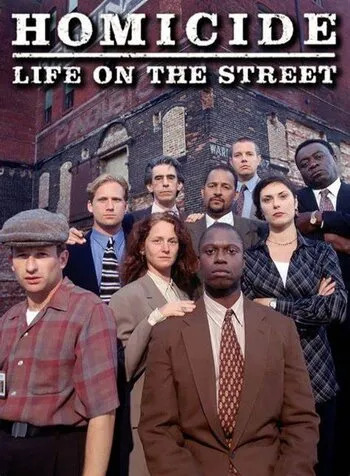
Law & Order - Characters (& Actors)
Sergeant Maxwell Greevey (George Dzundza)
Junior Detective Michael Logan (Chris Noth)
Captain Donald Cragen (Dann Florek)
Exex ADA Benjamin Stone (Michael Moriarty)
ADA Paul Robinette (Richard Brooks)
DA Adam Schiff (Steven Hill)
Sergeant Philip Cerreta (Paul Sorvino)
Dr Elizabeth Olivet (Carolyn McCormic)
Senior Detective Leonard W Briscoe (Jerry Orbach)
Lieutenant Anita Van Buren (S. Epatha Merkerson)
ADA Claire Kincaid (Jill Hennessy)
Exec ADA/DA John McCoy (Sam Waterston)
Junior Detective Reynaldo Curtis (Benjamin Bratt)
ADA Jamie Ross (Carey Lowell)
ADA Abigail Carmichael (Angie Harmon)
Junior/Senior Detective Edward Green (Jesse L. Martin)
Interim DA Nora Lewin (Dianne Wiest)
ADA Serena Southerlyn (Elisabeth Röhm)
DA Arthur Branch (Fred Thompson)
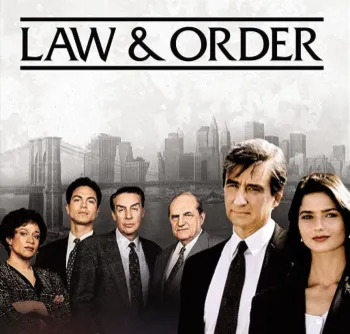
Neutralised - Characters (& Actors)
Abraham Machado (Alfred Molina)
Andreina Neri (Robin Wright)
Caleb Willow (Cary Elwes)
Dove Lewis (Alfre Woodard)
Esmé Verity (Janaeane Garofalo)
Faustus Sanchez (Hank Azaria)
Grayson Bryant (Harold Perrineau)
Hunter Kingsley (Chris Farley)
Ichabod Mortimer (Danny DeVito)
Jared Foster (Kirk Acevedo)
Kane Carter (Philip Seymour Hoffman)
Lance Carter (John Goodman)
Monday Duke (Patricia Arquette)
Noam Gold (Oliver Platt)
Omega Finch (Willem Dafoe)
Peyton Blythe (Regina King)
Russel Warszawski (Adam Sandler)
Sullivan Landon (Christopher Lloyd)
Tuesday Duke (Reese Witherspoon)
Victor Jamison (Mike Myers)
Winslow Warszawski (Brad Garrett)
Xavier Solomon (David Spade)
Yancy Haggard (Kiefer Sutherland)
Zoey Knight (Geena Davis)
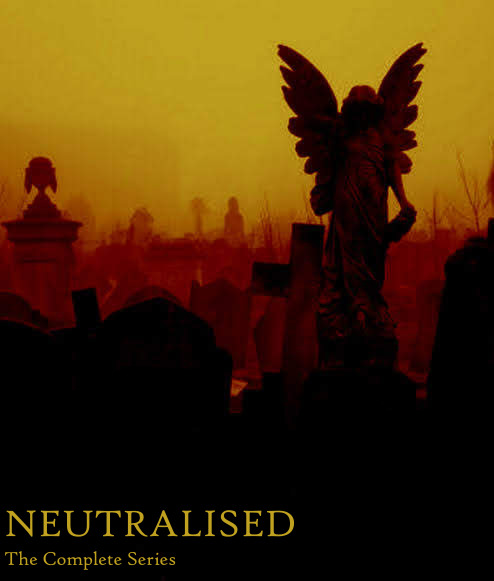
OZ - Characters (& Actors)
Augustus Hill (Harold Perrineau)
Tobias Beecher (Lee Tergesen)
Ryan O'Reily (Dean Winters)
Kareem Saïd / Goodson Truman (Eamonn Walker)
Miguel Alvarez (Kirk Acevedo)
Vernon Schillinger (J.K. Simmons)
Simon Adebisi (Adewale Akinnuoye-Agbaje)
Christopher Keller (Christopher Meloni)
Zahir Arif (Granville Adams)
Hamid Khan (Ernie Hudson Jr.)
Nacim Bismilla (Re Hanna)
Huseni Mershah / James Monroe Madison (Roger Guenvuer Smith)
Leroy Tidd / Salah Udeen (Jacues Smith)
Jefferson Keane (Leon)
Kenny Wangler (J.D. Williams)
Arnold 'Poet' Jackson (muMs the Schemer)
Paul Markstrom (O.L. Duke)
Junior Pierce (Malé-Lexington Alexander)
Malcolm 'Snake' Coyle (Treach)
Johnny Post (Tim McAdams)
James Robson (R.E. Rodgers)
Mark Mack (Leif Riddell)
Jaz Hoyt (Evan Seinfeld)
Scott Ross (Stephen Gevedon)
Andrew Schillinger (Frederick Koehler)
Nino Schibetta (Tony Schibetta)
Peter Schibetta (Eddie Malavarca)
Antonio Nappa (Mark Margolis)
Chucky Pancamo (Chuck Zito)
Dino Ortolani (Jon Seda)
Don Zanghi (John Palumbo)
Joey D'Angelo (Goodfella Mike G)
Mario Seggio (Todd Etelson)
Salvatore DeSanto (Phil Campanella)
Raoul 'El Cid' Hernandez (Luis Guzman)
Carmen 'Chico' Guerra (Otto Sanchez)
Carlos Martinez (Carlos Leon)
Carlo Ricardo (Juan Carlos Hernandez)
Cyril O'Reily (Scott William Winters)
Rev. Jeremiah Cloutier (Luke Perry)
Timmy Kirk (Sean Dugan)
Alonzo Torquemada (Bobby Cannavale)
Richie Hanlon (Jordan Lage)
Shirley Bellinger (Kathryn Erbe)
Bob Rebadow (George Morfogen)
Agamemnin Busmalis (Tom Mardirosian)
Donald Groves (Sean Whitesell)
Jackson Vahue (Rick Fox)
Desmond Mobay / John Basil (Lance Reddick)
Richard L'Italien (Eric Roberts)
Nikolai Stanislofsky (Phillip Casnoff)
William Giles (Austin Pendleton)
Henry Stanton (Thomas G. Waites)
Colonel Edward Galson (John Doman)
Eli Zabitz (David Johansen)
Kipekemie Jara (Zakes Mokae)
Dean Alvah Case (Charles S. Dutton)
Sean Murphy (Robert Clohessy)
Claire Howell (Kristin Rohde)
Diane Wittlesey (Edie Falco)
Clayton Hughes (Seth Gilliam)
Karl Metzger (Bill Fagerbakke)
Eddie Hunt (Murphy Guyer)
Lenny Burrano (Skipp Sudduth)
Father Ray Mukada (B.D Wong)
Doctor Gloria Nathan (Lauren Veldez)
Governor James Devlin (Željko Ivanek)
Martin Querns (Reg E. Cathey)
Doctor Frederick Garvey (Milo O'Shea)
Warden Leo Glynn (Ernie Hudson)
Tim McManus (Terry Kinney)
Sister Peter Marie Reimondo (Rita Moreno)
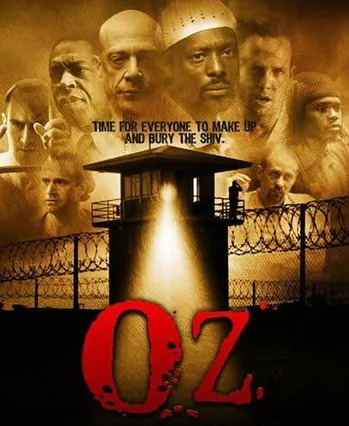
Picket Fences - Characters (& Actors)
Sheriff James 'Jimmy' Brock (Tom Skerritt)
Doctor Jill Brock (Kathy Baker)
Kimberly Brock (Holly Marie Combs)
Matthew Brock (Justin Shenkarow)
Zachary 'Zach' Brock (Adam Wylie)
Deputy Kenny Lacos (Costas Mandylor)
Deputy Maxine 'Max' Stewart (Lauren Holly)
Carter Pike (Kelly Connell)
Ginny Weedon (Zelda Rubinstein)
Douglas Wambaugh (Fyvush Finkel)
Judge Henry Bone (Ray Walston)
DA John Littleton (Don Cheadle)
DA Barnaby Wood (Peter Frechette)
ADA Petrovic (Jason Beghe)
Father Gary Barrett (Roy Dotrice)
Laurie Bey (Marlee Matlin)
Howard Buss (Robert Cornthwaite)
Doctor Joanna 'Joey' Diamond (Amy Aquino)
Lisa Fenn (Alexandra Lee)
Frank (David Proval)
Rachel Harris (Leigh Taylor-Young)
Ed Lawson (Richard Masur)
Peter Lebeck (Michael Jeter)
Milton Lebeck (Chris Owen)
Reverend Henry Novotny (Dabbs Greer)
Principal Michael Oslo (Roy Brocksmith)
Cynthia Parks (Elisabeth Moss)
Bill Pugen (Michael Keenan)
Lydia Brock (Cristine Rose)
Aiesha Campbell (Bruklin Harris)
Brian Latham (Gregory Vignolle)
Agent Donald Morrell (Sam Anderson)
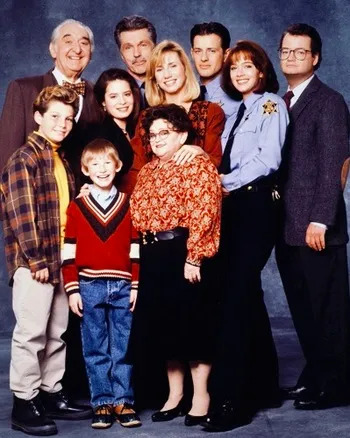
#original character#original characters#original writing#original series#Neutralised#chicago hope#homicide life on the street#law & order#oz#hbo oz#picket fences#shared universe#very long post#alfred molina#tagging only alfred because i hope the molina girlies like bram
8 notes
·
View notes
Text
LÉGENDES DU JAZZ
SERGE CHALOFF, LA DESCENTE AUX ENFERTS D’UN SAXOPHONISTE VIRTUOSE
‘’When Serge was cleaned up, you know, straight, he could be a delight, really to be around, a lot of fun. He knew how to handle himself. He had that gift. He could get pretty raunchy when he was strung out, but he could also be charming.''
- Zoot Sims
Né le 24 novembre 1923 à Boston, au Massachusetts, Serge Chaloff était issu d’une famille musicale. Son père Julius Chaloff était compositeur et avait joué du piano avec le Boston Symphony Orchestra. Sa mère était la professeure de piano émérite Margaret Chaloff. Mieux connue sous le surnom de ‘’Madame Chaloff’’, Margaret, qui était professeure au New England Conservatory, avait notamment enseigné à des grands noms comme Leonard Bernstein, George Shearing, Keith Jarrett, Herbie Hancock, Steve Kuhn, Chick Corea et Dick Twardzik.
Chaloff, qui avait d’abord appris le piano à partir de l’âge de six ans, avait également suivi des cours de clarinette avec Manuel Valerio du Boston Symphony Orchestra. À l’âge de douze ans, après avoir entendu Harry Carney jouer avec l’orchestre de Duke Ellington, Chaloff avait dédidé d’apprendre à jouer du saxophone baryton en autodidacte. Comme Chaloff l’avait expliqué plus tard lors d’une entrevue accordée au critique Leonard Feather: ‘’Who could teach me? I couldn't chase [Harry] Carney around the country.''
Même s’il avait été influencé par Carney et par Jack Washington, le saxophoniste baryton de l’orchestre Count Basie, Chaloff n’avait pas tenté de les imiter. Comme l’avait déclaré son frère Richard Chaloff, Serge ‘’could play {baritone} like a tenor sax. The only time you knew it was a baritone was when he took it down low. He played it high.… He had finger dexterity, I used to watch him, you couldn't believe the speed he played. He was precise. He was a perfectionist. He would be up in his bedroom as a teenager. He would be up by the hour to one, two, three in the morning and I'm trying to sleep and he'd go over a phrase or a piece until it was perfect… I used to put the pillow over my head, we had battles.’’
DÉBUTS DE CARRIÈRE
À partir de l’âge de quatorze ans, Chaloff avait commencé à jouer au Izzy Ort's Bar & Grille, un célèbre club situé sur la rue Essex à Boston. Son frère Richard expliquait: ‘’He didn't have a permit to work but he was pretty tall and he went down to see Izzy Ort...and played for him and Izzy liked the sax...and he hired my brother to work nights… My mother used to pray on Sundays that that he'd make it outa there… My brother sat in with bandsmen that were in their thirties and forties… and here he was fourteen, fifteen years old and he played right along with them, and he did so well that they kept him.''
En 1939, à l’âge de seulement seize ans, Chaloff s’était joint au groupe de Tommy Reynolds comme saxophoniste ténor. Par la suite, Chaloff avait joué avec les groupes de Dick Rogers, Shep Fields et Ina Ray Hutton. En juillet 1944, Chaloff avait également fait partie de l’éphémère groupe de Boyd Raeburn aux côtés de Dizzy Gillespie et Al Cohn, avec qui il avait tissé une amitié qui avait duré toute sa vie. C’est d’ailleurs avec Raeburn que Chaloff avait fait ses débuts sur disque en janvier 1945, notamment dans le cadre de la pièce ‘’Interlude’’ de Dizzy Gillespie, qui s’était mieux fait connaître plus tard sous le titre de ‘’A Night in Tunisia.’’ Le son de Chaloff était particulièrement perceptible au début de l’enregistrement.
C’est durant son séjour avec le groupe de Raeburn que Chaloff avait entendu pour la première fois Charlie Parker, qui était devenu sa plus importante influence. Mais selon le critique Stuart Nicholson, plutôt que d’imiter Parker, Chaloff s’était inspiré du jeu très émotif de Parker pour bâtir son propre style. Richard Chaloff avait ajouté que son frère saisissait toutes les occasions pour jouer avec Parker à New York. Richard avait déclaré: ‘’Any time he had the chance he would pal with him. He would sit in with him at night… My brother used to say that he was up till 4,5,6, in the morning with the Bird… All the beboppers found each other out.’’
Mais les tournées avec le groupe de Raeburn étaient épuisantes. Chaloff se rappelait d’ailleurs avoir joué durant soixante soirs consécutifs et avoir parcouru jusqu’à 500 miles entre chaque contrat. C’est d’ailleurs au cours de son séjour avec le groupe que Chaloff avait commencé à consommer de l’héroïne et à ‘’marcher sur les nuages’’ comme il l’avait déclaré lui-même. Au milieu des années 1940, Chaloff avait également travaillé avec Dizzy Gillespie, Benny Harris, George Handy, Oscar Pettiford et Earl Swope. Le 21 septembre 1946, Chaloff avait enregistré sa propre version deu standard ‘’Cherokee’’ sous le titre de ‘’Blue Serge’’.
Après avoir travaillé en 1945-46 avec les big bands de Georgie Auld et Jimmy Dorsey, Chaloff avait enregistré avec de petits groupes de bebop de 1946 à 1947. Parmi ceux-ci, on remarquait le Sonny Berman's' Big Eight, le Bill Harris's Big Eight, le Ralph Burns Quintet et les Red Rodney's Be-Boppers qui comprenaient également Allen Eager au saxophone ténor. Au début de 1947, Chaloff avait d’ailleurs partagé un appartement avec Red Rodney, un autre grand consommateur d’héroïne. C’est ainsi que Chaloff était tombé dans un engrenage dont il avait pris des années à s’affranchir.
Commentant sa collaboration avec Chaloff, le saxophoniste Allen Eager avait déclaré: “Serge was a groovy guy to be around. The three of us were all pretty much in the same zone as far as musical leanings go.” En janvier 1947, Chaloff avait enregistré deux standards avec le groupe de Rodney: ‘’Elevation’’ de Gerry Mulligan et ‘’The Goof and I’’ d’Al Cohn. En 2003, les disques Uptown avaient publié du matériel inédit enregistré lors de cette session qui mettait en vedette Eager, Chaloff, Jimmy Johnson et Buddy Rich. Toujours en janvier 1947, Chaloff s’était produit au club Three Deuces avec le sextet de Georgie Auld aux côtés de Rodney, Tiny Kahn et Lou Levy. “Wonderful band’’, avait déclaré Chaloff plus tard, même si sa collaboration avec le groupe n’avait pas été tellement lucrative. À la même époque, Chaloff avait également joué au Smalls Paradise de Harlem avec Leo Parker, un autre saxophoniste baryton qui était disparu avant de réaliser son plein potentiel.
Durant la même période, Chaloff avait enregistré deux 78-tours avec son propre sextet pour les disques Savoy. Trois des quatre pièces figurant sur ces 78-tours avaient été écrites et arrangées par Chaloff. La quatrième composition intitulée ‘’Gabardine and Serge’’, avait été écrite par Tiny Kahn. Le critique Marc Myers écrivait: ‘’All four tunes are daredevil cute and blisteringly fast. They showcase tight unison lines and standout solos by four of the six musicians, who are in superb form....(On 'Pumpernickel') Chaloff shows off his inexhaustible and leonine approach to the baritone sax.’’
Chaloff était devenu une grande vedette en 1947 lorsqu’il s’était joint au Second Herd de Woody Herman. Le groupe s’était mérité le surnom de Four Brothers Band après que la section de saxophones composée de Chaloff, Stan Getz, Zoot Sims et Herbie Steward (qui avait été remplacé plus tard par Al Cohn) ait enregistré la composition de Jimmy Giuffre du même nom. Chaloff avait également participé à plusieurs autres enregistrements du groupe, dont ‘’Keen and Peachy’’. Chaloff avait aussi joué en solo sur des pièces comme "The Goof and I" et "Man, Don't Be Ridiculous." Selon Nicholson, sur cette dernière pièce, Chaloff avait démontré ‘’an astonishing technical facility that was quite without precedent on the instrument.’’
En 1949, l’historien et critique Leonard Feather avait écrit dans son livre Inside Be-Bop que le jeu propre et le bon goût de Chaloff avaient fait de lui ‘’the No.1 bop exponent of the baritone.'' Chaloff était d’ailleurs surnommé le ‘’Charlie Parker blanc.’’
Malheureusement, Chaloff avait aussi imité Parker sur un aspect beaucoup moins enviable de sa personnalité: il avait développé une dépendance envers l’héroïne. Selon Gene Lees, à partir de 1947, Chaloff était même devenu non seulement le principal fournisseur du groupe de Woody Herman, mais son consommateur le plus important. Toujours selon Feather, Chaloff déposait une couverture au-dessus des sièges arrière des autobus dans lesquels il se transportait afin de pouvoir vendre sa marchandises plus discrètement. Le critique Whitney Balliett avait ajouté que Chaloff avait ''a satanic reputation as a drug addict whose proselytizing ways with drugs reportedly damaged more people than just himself.’’ Plusieurs musiciens avaient d’ailleurs blâmé Chaloff pour la mort du trompettiste de vingt et un ans Sonny Berman, qui était décédé à la suite d’une overdose le 16 janvier 1947.
Le trompettiste Rolf Ericson, qui s’était joint au groupe de Woody Herman en 1950, avait décrit ainsi l’impact de la consommation de drogues sur les performances de la formation: ‘’In the band Woody had started on the coast...late in 1947, which I heard many times, several of the guys were on narcotics and four were alcoholics. When the band started a night's work they sounded wonderful, but after the intermission, during which they used the needle or lushed, the good music was over. It was horrible to see them sitting on the stage like living dead, peering into little paper envelopes when they weren't playing.''
Commentant le séjour de Chaloff avec le groupe, le critique Gene Lees écrivait: ‘’Hiring him must be accounted one of Woody’s worst errors. Serge was a serious heroin addict and like so many of his kind, a dedicated proselytizer for the drug. He would hook a number of the Second Herd bandsmen.” À l’époque, on estimait qu’environ 50% des saxophonistes du groupe de Herman étaient des adeptes de l’héroïne. D’autres musiciens consommaient des amphétamines, ce qui avait incité Herman à conclure: “Everybody was on practically everything except roller-skates… I’ve chased ‘connections’ out of clubs from coast to coast”. Il y avait aussi quatre alcooliques dans la formation.
Lors d’une performance à Washington, D.C., Herman avait eu une violente discussion avec Chaloff au sujet de sa consommation de drogues. Comme Herman l’avait raconté plus tard au journaliste Gene Lees:
‘’He was getting farther and farther out there, and the farther out he got the more he was sounding like a fagalah. He kept saying, ‘Hey, Woody, baby, I’m straight, man, I’m clean.’ And I shouted, ‘Just play your goddamn part and shut up!'....I was so depressed after that gig. There was this after-hours joint in Washington called the Turf and Grid....I had to fight my way through to get a drink, man. All I wanted was to have a drink and forget it. And finally I get a couple of drinks, and it’s hot in there, and I’m sweating, and somebody’s got their hands on me, and I hear, ‘Hey, Woody, baby, whadya wanna talk to me like that for? I’m straight, baby, I’m straight.’ And it's Mr. Chaloff. And then I remember an old Joe Venuti bit. We were jammed in there, packed in, and… I peed down Serge's leg. You know, man, when you do that to someone, it takes a while before it sinks in what's happened to him. And when Serge realized, he let out a howl like a banshee.''
Mais Chaloff était parfaitement conscient de sa valeur pour le groupe. Lorsque Herman avait menacé de le congédier, Chaloff avait simplement répliqué: “That’s the baritone book. You can’t fire me because I’m the only one that knows it by heart.”
Un des partenaires de Chaloff dans l’orchestre de Woody Herman, le vibraphoniste Terry Gibbs, avait décrit ainsi le comportement pour le moins erratique de Chaloff:
‘'He'd fall asleep with a cigarette all the time and always burn a hole in a mattress. Always! In about twelve hotels. When we'd go to check out, the hotel owner – Serge always had his hair slicked down even though he hadn't taken a bath for three years...the manager would say, 'Mr Chaloff, you burned a hole in your mattress and...' 'How dare you. I'm the winner of the down beat and Metronome polls. How dare you?'...the manager would always say, 'I'm sorry Mr Chaloff,'...Except one time when the band got off on an air-pistol kick....Serge put a telephone book against the door and was zonked out of his bird...he got three shots at the telephone book and made the biggest hole in the door you ever saw. So when he went to the check out, the guy said, 'Mr Chaloff, it'll cost you.'...He 'how-dared' him a few times. Couldn't get away with it. He said 'Well listen, if I'm gonna pay for the door I want the door.' It was twenty four dollars. So he paid for the door. I happen to be standing close by. 'Hey Terry,' he said. 'Grab this,' and all of a sudden I found myself checking out....We're walking out of the hotel with a door.''
Un autre collègue de Chaloff, le saxophoniste Al Cohn, se demandait même comment il avait pu éviter d’être assassiné. Cohn expliquait: ‘’I don't know how we kept from being killed. Serge would always be drunk. He was quite a drinker. Everything he did, he did too much. So one time we're driving, after work. It's four o'clock in the morning, and he makes a left turn, and we're wondering why the road is so bumpy. Turned out he made a left turn into the railroad tracks, and we're going over the ties.''
Pourtant, Chaloff pouvait être adorable quand il restait sobre. Comme l’avait déclaré Zoot Sims: ‘’When Serge was cleaned up, you know, straight, he could be a delight, really to be around, a lot of fun. He knew how to handle himself. He had that gift. He could get pretty raunchy when he was strung out, but he could also be charming.''
Curieusement, les problèmes de dépendance de Chaloff n’avaient pas semblé affecter outre-mesure ses performances sur scène. Comme Herman l’avait confirmé lui-même dans le cadre d’une entrevue accordée à William D. Clancy: “Serge was probably the freshest, newest-sounding baritone that had come along in years.”
Finalement, n’en pouvant plus, Herman avait saisi le prétexte de la perte de popularité du swing (à l’époque, plusieurs big bands avaient été contraints de mettre fin à leurs activités pour des raisons économiques) pour mettre fin à l’existence de son groupe en décembre 1949. Il faut dire que l’orchestre avait perdu énormément d’argent: environ 180 000$, l’équivalent de deux millions de dollars au cours actuel.
Faisant référence de façon discrète au comportement de Chaloff au moment de démarrer les activités d’un groupe de plus petite taille à Chicago en 1950, Herman avait déclaré: ‘’'You can't imagine how good it feels to look at my present group and find them all awake. To play a set and not have someone conk out in the middle of a chorus.’’
DERNIÈRES ANNÉES
Après avoir quitté le groupe d’Herman, Chaloff avait passé une partie de l’année 1950 à jouer avec le All Star Octet de Count Basie, un groupe de taille plus modeste que le chef d’orchestre avait formé à la suite du déclin des big bands. À l’époque, le groupe, qui avait avait enregistré quelques pièces pour les disques Victor et Columbia, comprenait Basie, Chaloff, Wardell Gray, Buddy DeFranco, Clark Terry, Freddie Green, Jimmy Lewis et Gus Johnson. Plus tard la même année, Chaloff était retourné à Boston et avait joué avec de petits groupes dans des clubs comme le High Hat, le Petty Lounge et le Red Fox Cafe.
Après être retourné à New York, Chaloff avait formé son propre groupe avec des musiciens comme Earl Swope, Bud Powell, Joe Shulman et Don Lamond en vue d’une performance au club Birland en février 1950. Le critique Barry Ulanov avait commenté dans le magazine Metronome: “Serge Chaloff waved his big baritone horn at Birdland last month and inaugurated what will be a very interesting career as a leader.” Chaloff était alors retourné à Boston pour deux semaines et s’était produit avec une section rythmique avec qui il avait interprété du matériel associé au groupe de Herman.
Une performance de Chaloff au Celebrity Club de Providence, au Rhode Island, avait même été retransmise sur les ondes de la station radiophonique WRIV. L’enregistrement avait éventuellement été publié en 1994 par les disques Uptown dans le cadre d’un CD intitulée Boston 1950. Participaient également à l’enregistrement des musiciens comme Sonny Truitt, Milt Gold, Nat Pierce et Joe Shulman. Le CD comprenait aussi une entrevue de trois minutes avec Chaloff.
Le fait de jouer avec de petits groupes avait permis à Chaloff de retourner à la base et de développer un nouveau style de jeu. En 1951, Chaloff avait déclaré que le fait de se retirer du centre de l’action lui avait permis d’ajouter plus de couleur et de flexibilité à son jeu. Poursuivant dans le même sens, le saxophoniste Al Cohn avait ajouté que le jeu de Chaloff comme soliste ne s’était véritablement développé qu’à partir du moment où il avait décidé de cesser de se produire avec des big bands. En 1952, Chaloff était retourné à Boston et avait enregistré avec le pianiste Dick Twardzik, mais la session n’avait jamais été publiée. Il avait aussi fait des apparitions à la télévision et avait dirigé le groupe-maison d’un club local.
Devenu une grande vedette, Chaloff avait remporté les sondages des magazines Down Beat et Metronome comme meilleur saxophoniste baryton à chaque année de 1949 à 1953. Il avait aussi fait partie des Metronome All-Stars en janvier 1950 aux côtés de grands noms du jazz comme Dizzy Gillespie, Stan Getz, Lee Konitz et Kai Winding.
Malheureusement, Chaloff avait continué de se droguer et de boire abondamment, ce qui l’avait empêché de décrocher des contrats sur une base régulière. Il avait même cessé complètement de jouer en 1952-53.
À la fin de 1953, Chaloff avait tenté de faire un retour sur scène après que le disc jockey de Boston, Bob 'The Robin' Martin lui ait proposé de devenir son gérant. Avec l’aide de Martin, Chaloff avait formé un nouveau groupe qui s’était produit dans des clubs de Boston comme le Jazzorama et le Storyville. Les partenaires musicaux de Chaloff à l’époque étaient Boots Mussulli ou Charlie Mariano au saxophone alto, Herb Pomeroy à la trompette et Dick Twardzik au piano.
Même si du propre aveu de Martin, Chaloff ne jouait pas beaucoup à l’époque en raison de ses antécédents liés �� la consommation de narcotiques, il se donnait à fond lorsqu’on lui donnait l’occasion de performer. Martin expliquait: ‘’You had to talk somebody to give him a chance to play. When you got him a gig in a club or a hotel, he would usually mess it up. But when he did show...and got playing...it was,'Stand back, Baby!’’ Le saxophoniste Jay Migliori, qui avait joué avec Chaloff au Storyville, se rappelait: ‘’Serge was a wild character. We were working at Storyville and, if he was feeling good, he used to let his trousers gradually fall down during the cadenza of his feature, 'Body and Soul.' At the end of the cadenza, his trousers would hit the ground.''
En juin et septembre 1954, Chaloff avait participé à deux sessions pour les disques Storyville de George Wein. Les enregistrements avaient été publiés sous la forme de deux microsillons dix pouces. La première session avait été présentée comme un album conjoint avec le saxophoniste Boots Mussulli, et mettait en vedette un groupe composé de Russ Freeman au piano, de Jimmy Woode à la contrebasse et de Buzzy Drootin à la batterie. Wein écrivait dans les notes de pochette: ‘’ 'An alternate title for this album could be 'Serge Returns'....Each selection in these six was chosen and arranged solely by Serge.'' L’album comprenait cinq standards ainsi qu’une composition de Chaloff intitulée ‘’Zdot’’. La conclusion de la pièce avait été écrite par la mère de Chaloff, Margaret. Sur le second album intitulé The Fable of Mabel, Chaloff s’était produit avec un groupe de neuf musiciens mettant en vedette Charlie Mariano, qui avait écrit trois des cinq compositions de l’album, et Herb Pomeroy, qui avait composé la pièce ‘’Salute to Tiny’’ en hommage au batteur et arrangeur Tiny Kahn. L’ambitieuse pièce-titre avait été écrite par le pianiste Dick Twardzik, qui avait déclaré dans les notes de pochette:
‘’'The Fable of Mabel was introduced to jazz circles in 1951-52 by the Serge Chaloff Quartet. Audiences found this satirical jazz legend a welcome respite from standard night club fare. In this legend, Mabel is depicted as a woman who loves men, music and her silver saxophone that played counterpoint (her own invention which proved impractical). The work is divided into three movements: first, New Orleans; second Classical; and third, Not Too Sad An Ending. The soulful baritone solo by Serge Chaloff traces Mabel's humble beginnings working railroad cars in New Orleans to her emergence as a practising crusader for the cause of Jazz. During her Paris days on the Jazz Houseboat, her struggle for self-expression is symbolized by an unusual saxophone duet Charlie Mariano and Varty Haritrounian. Mabel always said she wanted to go out blowing. She did. The sixth track, Al Killian's 'Lets Jump', was chosen by Chaloff, who said: 'Now that we've proven how advanced we are let's show the people that we can still swing.''
Un mois après avoir complété l’enregistrement, Chaloff était entré dans une profonde crise personnelle. En octobre 1954, sans argent et incapable de se procurer de l’héroïne, Chaloff s’était inscrit volontairement au programme de réhabilitation du Bridgewater State Hospital. Après avoir passé trois mois et demi à l’hôpital, Chaloff avait été libéré en février 1955.
La même année, le gérant Bob Martin avait convaincu les disques Capitol d’enregistrer un album avec Chaloff dans le cadre de la série ‘'Stan Kenton Presents Jazz.’’ Intitulé ‘’Boston Blow-Up!’’, l’album avait été enregistré à New York en avril 1955. Chaloff était accompagné sur l’album de Boots Mussulli au saxophone alto, de Herb Pomeroy à la trompette, de Ray Santisi au piano, d’Everett Evans à la contrebasse et de Jimmy Zitano à la batterie. À l’époque, Pomeroy, Santisi et Zitano avaient développé une très grande complicité, car ils se produisaient régulièrement au Boston's Stable Club, où ils avaient enregistré l’album live Jazz in a Stable pour les disques Transition en mars précédent. Quant à Mussulli, il avait fait partie de l’orchestre de Stan Kenton de 1944 à 1947 et de 1952 à 1954.
Malgré la mauvaise réputation de Chaloff, le critique Richard Vacca avait écrit que la présence rassurante et stable de Mussilli, qui avait déjà participé à la série Kenton Presents en 1954, avait été d’un grand réconfort pour les disques Capitol. Dans le cadre de l’album, Mussilli avait composé et arrangé cinq nouvelles pièces, dont ‘’Bob the Robin’’, qu’il avait écrite en hommage au gérant de Chaloff, Bob Martin. C’est Pomeroy qui avait écrit les arrangements des standards qui figuraient sur l’album. Très satisfait du déroulement des sessions, Chaloff avait déclaré: ‘’When I came back on the music scene, just recently, I wanted a book of fresh sounding things. I got just what I wanted from Herb and Boots. I think their writing shows us a happy group trying to create new musical entertainment by swinging all the time. Jazz has got to swing; if it doesn't, it loses its feeling of expression. This group and these sides are about the happiest I've been involved with.'' Parmi les principaux faits saillants de l’album, on remarquait les ballades "What's New?" et "Body and Soul". Commentant cette dernière pièce dans le 1956 Metronome Yearbook, le critique Bill Coss avait qualifié l’interprétation de Chaloff de ‘’frightening example of Serge's form, moaning through a seemingly autobiographical portrayal of (his) Body and Soul', an enormously emotional jazz listening experience.'' Jack Tracy, qui avait attribué cinq étoiles à l’album dans sa critique publiée dans le magazine Down Beat, avait ajouté: ‘’'Serge, for years one of music's more chaotic personalities, has made an about face of late and is again flying right. It is evident in his playing, which has become a thing of real beauty… Chaloff offers the best display of his talents ever to be put on wax. It swings, it has heart, it has maturity—it is the long-awaited coalescence of a great talent.''
Le succès inespéré de l’album Boston Blow-Up! avait éventuellement permis à Chaloff de relancer sa carrière et de décrocher de nombreux contrats. La performance de Chaloff au Boston Arts Festival en juin 1955 avait inspiré le commentaire suivant à un critique du Boston Herald: ‘’The ingenuity of Chaloff as a soloist is enormous, and his use of dissonance always conveys a sense of purpose and of form. In 'Body and Soul', he exhibited his capabilities vigorously, taking a deliberate tempo and treating the music with a lyric, delicate, tonal standpoint....the harmonies of the group are tense and the melodies resourceful and they play with a kind of controlled abandon.''
En 1956, Chaloff avait continué de se produire un peu partout à travers les États-Unis, le plus souvent en compagnie d’un saxophoniste alto. Si Chicago, Chaloff était accompagné du saxophoniste Lou Donaldson, son partenaire à Los Angeles était Sonny Stitt. Le groupe comprenait également Leroy Vinnegar, qui était alors le contrebassiste le plus dominant de la Côte ouest.
Le succès de la performance de Chaloff à Los Angeles lui avait permis d’enregistrer un second album pour les disques Capitol en mars 1956. Avaient également participé à l’enregistrement le pianiste Sonny Clark et le contrebassiste Leroy Vinnegar. Comme batteur, on retrouvait Philly Joe Jones, qui était de passage à Los Angeles avec le quintet de Miles Davis. Décrivant l’enregistrement de l’album, Chaloff avait commenté:
‘’'My last record, Boston Blow-up! was one of those carefully planned things....But this time I was feeling a little more easy-going, and I decided to make a record just to blow. I picked out what I felt was the best rhythm section around and told them just to show up...no rehearsals...no tunes set...and trust to luck and musicianship....I'd never worked with these guys before except for jamming briefy with Joe Jones eight years ago, but I knew from hearing them what they could do....We were shooting for an impromptu feeling and we got it. It has more freedom and spark than anything I've recorded before. And I don't think there's a better recommendation than that when it comes to honest jazz.''
Vladimir Somosko écrivait dans sa biographie de Chaloff intitulée ‘’Serge Chaloff: A Musical Biography and Discography’’, publiée en 1998: ‘’'The rapport of the group was as moving as the music, and the net effect was of every note being in place, flawlessly executed, as if even the slightest nuance was carefully chosen for maximum aesthetic impact. This is a level of achievement beyond all but the masters, and from an ensemble that was not even a working group it takes on an aura of the miraculous.''
Analysant le jeu de Chaloff sur la pièce "A Handful of Stars", le critique Stuart Nicholson avait précisé: ‘’Paraphrase becomes central to his performance of 'A Handful of Stars' where he scrupulously avoids stating the melody as written. At one point he plumbs the baritone for a bumptious bass note and soars to the top of the instrument's range in one breath, effortlessly concealing the remarkable technical skill required for such seemingly throw-away trifles. This sheer joy at music making seems to give his playing a life-force of its own.'' Après avoir qualifié l’album de chef-d’oeuvre, Richard Cook et Brian Morton avaient écrit dans le Penguin Guide to Jazz: ‘’Thanks for the Memory" is overpoweringly beautiful as Chaloff creates a series of melodic variations which match the improviser's ideal of fashioning an entirely new song. 'Stairway to the Stars' is almost as fine, and the thoughtful 'The Goof and I' and 'Susie's Blues' show that Chaloff still had plenty of ideas about what could be done with a bebopper's basic materials. This important session has retained all its power.’'
Après la publication de l’album, Chaloff avait continué de travailler sur la Côte ouest, se produisant notamment au Starlite Club d’Hollywood en mai 1956. Durant le même mois, Chaloff avait été victime de douleurs au dos et à l’abdomen qui avaient entraîné une paralysie de ses deux jambes. Chaloff était retourné de toute urgence à Boston, où une opération exploratoire avait permis de découvrir qu’il était atteint d’un cancer de la moelle épinière. Le frère de Chaloff, Richard, expliquait: ‘’We took him down there [Massachusetts General Hospital] and they found he had lesions on his spine.....they operated and took most of the lesions away, and then he went on a series of X-ray treatments. Oh they were terrible. He must have had twenty or twenty-five in a row. And in those days they really gave you heavy doses of it. Then occasionally he got spots on the lungs''.
Malgré sa maladie et le traitement qui s’en était suivi, Chaloff avait continué de se produire en concert. Le 18 juin 1956, Chaloff avait dû se déplacer en chaise roulante pour enregistrer la composition "Billie's Bounce" de Charlie Parker avec les Metronome All Stars. Avaient également participé à l’enregistrement Zoot Sims, Art Blakey, Charles Mingus et Billy Taylor.
Chaloff avait fait son dernier enregistrement dans le cadre de l’album-réunion The Four Brothers... Together Again!. Le groupe était composé de Zoot Sims, d’Al Cohn, d’Herbie Steward et de Chaloff aux saxophones, d’Elliot Lawrence au piano, de Buddy Jones à la contrebasse et de Don Lamond à la batterie. Sur les dernières pièces de l’album, Charlie O'Kane avait remplacé Chaloff dans les parties collectives afin de lui permettre de conserver ses forces pour les solos. Décrivant l’enregistrement de l’album, Richard Chaloff avait commenté: ‘’He took a wheelchair down to make that recording, you know. They didn't think he was going to make it. I heard stories from people there. But when he stood up and played, you never knew he was a sick fellow. He played dynamic. If you listen to the record he sounds like the old Serge. He pulled himself together. I don't know how he did it. But he had tremendous drive, tremendous stamina.’’ Dans son compte rendu publié dans le magazine Down Beat, le critique Don Gold écrivait: ‘’'This last session before his death represents a fervent expression of a fatally ill man. It is a kind of significant farewell in the language he knew best.''
Chaloff avait présenté sa dernière performance au Stable Club de Boston en mai 1957. Lors d’une entrevue qu’il avait accordée en 1993, le pianiste Charlie ‘’the Whale’’ Johnson avait décrit les dernières performances de Chaloff de la façon suivante: ‘’'I remember pushing Chaloff's wheelchair into The Stable for his last appearances there. He was in bad shape but could still really play, standing leaning on a pillar. However, he didn't have much stamina. He couldn't really finish the gig. I also had to go get pot and booze for him. He was still using these steadily, even in the hospital at the end.''
Chaloff était à l’agonie lorsqu’il avait été admis au Massachusetts General Hospital le 15 juillet 1957. Selon son frère Richard, Chaloff avait apporté son saxophone ainsi que son singe miniature à l’hôpital. Richard expliquait:
‘'He still had the kinkajou monkey Mother got him to keep him company. And he had his horn. I was told they wheeled him into a vacant operating theatre so he could practise, and that was his last gig, his last public performance, solo baritone sax alone in an operating theatre. Nurses, doctors and even patients were standing outside and listening. He fought it to the end. Mother would visit him and urge him on, saying, 'You can beat it' and things. But that last day, they brought a priest to visit him, and the priest saw Serge in bed looking so wasted, and the priest thought he was supposed to perform the last rites. Serge woke up in the middle of it and really panicked, sliding away from him and yelling 'No! No! Get out!' But after that he seemed to give up. I think that's when he realized it was all over.''
Chaloff était mort le lendemain. Il avait seulement trente-trois ans. Chaloff a été inhumé au Forest Hills Cemetery, dans le comté de Suffolk, au Massachusetts.
Reconnu comme le premier saxophoniste baryton à avoir joué du bebop, Chaloff avait contribué à démontrer, à l’instar de ses pairs Leo Parker et Cecil Payne, que le saxophone baryton pouvait très bien s’adapter à l’évolution du jazz moderne.
©-2024, tous droits réservés, Les Productions de l’Imaginaire historique
SOURCES:
JACK, Gordon. ‘’Serge Chaloff: the bebop lowdown.’’ Jazz Journal, 11 mai 2021.
‘’Serge Chaloff.’’ Wikipedia, 2024.
‘’Serge Chaloff.’’ All About Jazz, 2024.
2 notes
·
View notes
Text

So here’s a funny story about David Ford and if you’ve watched 1776 with the Audio commentary with Peter Hunt, Bill Daniels and Ken Howard then you’ll probably know what I’m talking about. But for those who don’t know, here’s the story:
When the show was out of town in Washington D.C, at one night show, there had been a matinee, something was wrong with David Ford. Peter Hunt didn’t know what was going on, and then Ken said that David had fallen asleep. Peter was standing in the back of the theater with Stuart Ostrow, so he couldn’t fully see what was going on, all he knew at that point was that Ford was on the moon. And then Ken steps in and explains that there had been a matinee earlier that day, and some big meal or whatever a couple of drinks, and Ford happened to fall asleep. So for a moment or two, Ford was at 6’s and 7’s and then Ralston Hill had to say a few things to him, but the best part is, the audience thought it was HANCOCK who had fallen asleep, not Ford. They thought it was acting. So it kinda worked in a way but it must have been scary for David.
But at that moment when Hunt was watching that all happen, the show stopped and he knew at that moment how PIVOTAL David Ford was as Hancock because Hancock has to control everything and make decisions and so when Ford was out of it for a moment, the show sort of collapsed and fell to pieces.
So in my opinion, David Ford was the most important aspect of the damn show. Without Hancock, the show wouldn’t make any sense and everyone would be running around like chickens without a head. And David Ford was so good at being commanding and using that terrific booming voice of his. Whenever he is speaking, you have no choice but to just shut the fuck up and listen. He was incredible at that. No one will ever be able to recreate his performance because there will never be another David Ford. It’s a shame how unknown he is these days. He was truly amazing and a very very nice person.
5 notes
·
View notes
Text
Avril MMXXV
Films
Une belle fille comme moi (1972) de François Truffaut avec Bernadette Lafont, André Dussollier, Claude Brasseur, Charles Denner, Guy Marchand, Anne Kreis, Philippe Léotard et Danièle Girard
L'Épreuve de force (The Gauntlet) (1977) de et avec Clint Eastwood et aussi Sondra Locke, Pat Hingle, William Prince, Bill McKinney, Michael Cavanaugh, Dan Vadis, Roy Jenson et Carole Cook
Espion, lève-toi (1982) de Yves Boisset avec Lino Ventura, Michel Piccoli, Krystyna Janda, Bruno Cremer, Bernard Fresson, Heinz Bennent, Marc Mazza, Roger Jendly et Christian Baltauss
La Clé de verre (The Glass Key) (1942) de Stuart Heisler avec Alan Ladd, Veronica Lake, Brian Donlevy, Bonita Granville, Richard Denning, Joseph Calleia, William Bendix et Frances Gifford
Autour de minuit (Round Midnight) (1986) de Bertrand Tavernier avec Dexter Gordon, François Cluzet, Gabrielle Haker, Sandra Reaves-Phillips, Lonette McKee, Christine Pascal, Herbie Hancock, Bobby Hutcherson, Pierre Trabaud et Frédérique Meininger
The Black Dahlia (2006) de Brian De Palma avec Scarlett Johansson, Josh Hartnett, Aaron Eckhart, Hilary Swank, Mia Kirshner, Mike Starr, Fiona Shaw, William Finley et Patrick Fischler
Kansas City (1996) de Robert Altman avec Jennifer Jason Leigh, Miranda Richardson, Harry Belafonte, Michael Murphy, Dermot Mulroney, A.C. Tony Smith, Steve Buscemi, Brooke Smith et Jane Adams
Le Pilon (1981) de James Thor avec Michel Subor, André Weber, Tony Librizzi, Jean Louis Fortuit, Annabelle Février, Henri Jacques Huet, Yves Afonso, Gérard Victor et Eddy Roos
Twin Peaks: Fire Walk with Me (1992) de David Lynch avec Sheryl Lee, Ray Wise, Mädchen Amick, Michael J. Anderson, Dana Ashbrook, Phoebe Augustine, Frances Bay, David Bowie, Catherine E. Coulson, Eric Da Re, Miguel Ferrer, Pamela Gidley et Chris Isaak
Mince alors 2 ! (2021) de et avec Charlotte de Turckheim et aussi Catherine Hosmalin, Lola Dewaere, Patrick de Valette, Charlotte Gaccio, Johanna Piaton, Marc Riso, Barbara Bolotner, Angelina Gomez, Sabri Ghazala, Brice Verger Doucy et Charlotte Ndebeka
Dirty Harry (1971) de Don Siegel avec Clint Eastwood, Andrew Robinson, Harry Guardino, Reni Santoni, John Vernon, John Larch, John Mitchum, Mae Mercer et Lyn Edginton
Derrière le miroir (Bigger Than Life) (1956) de Nicholas Ray avec James Mason, Barbara Rush, Walter Matthau, Robert F. Simon, Christopher Olsen, Roland Winters, Rusty Lane et Rachel Stephens
La Réparation (2024) de Régis Wargnier avec Julia de Nunez, Clovis Cornillac, Julien de Saint Jean, J.C. Lin, Louis-Do de Lencquesaing, Antoine Pelletier, Anne Azoulay et Andrzej Seweryn
Scandaleusement vôtre (Wicked Little Letters) (2023) de Thea Sharrock avec Olivia Colman, Jessie Buckley, Anjana Vasan, Joanna Scanlan, Gemma Jones, Malachi Kirby, Lolly Adefope, Eileen Atkins et Timothy Spall
L'Entourloupe (1980) de Gérard Pirès avec Jean-Pierre Marielle, Jacques Dutronc, Gérard Lanvin, Anne Jousset, Jean Lanier, Daniel Laloux, André Penvern, Françoise Deldick et Isabelle Mergault
Une journée particulière (Una giornata particolare) (1977) d'Ettore Scola avec Sophia Loren, Marcello Mastroianni, John Vernon, Françoise Berd, Vittorio Guerrieri, Alessandra Mussolini et Patrizia Basso
Anatomie d'une chute (2023) de Justine Triet avec Sandra Hüller, Swann Arlaud, Milo Machado-Graner, Antoine Reinartz, Samuel Theis, Jehnny Beth, Saadia Bentaïeb, Camille Rutherford, Anne Rotger et Sophie Fillières
Ipcress, danger immédiat (The Ipcress File) (1965) de Sidney J. Furie avec Michael Caine, Nigel Green, Guy Doleman, Sue Lloyd, Gordon Jackson, Aubrey Richards, Frank Gatliff, Thomas Baptiste, Oliver MacGreevy et Freda Bamford
Séries
Les Nouvelles Aventures de Zorro Saison 1, 2
Le Mort se porte bien - L'Intruse - Sabotage - Zorro contre Zorro - Duel en famille - Le Défi de Zorro - La Rançon - Naissance d'une légende - Un cavalier dans la nuit - Le Signe de Zorro - Une légende sans fin - Un poing, c'est tout - Honore le père - Le Magicien - Pacte avec le diable - Qui est Zorro ? - Les Diamants sont presque éternels - L'Héritage - Un loup dans la bergerie - Dis-moi qui tu hantes - Les Chasseurs de primes - L'Affaire du médium - Une situation explosive - Une affaire de famille - L'Usurpateur - Le Marchand de rêves - Maître et élève
K2000 Saison 3, 4
L'alligator - Danse mania - Une nouvelle amitié - Le caméléon - Meurtre sur mesure - Le démon noir - Pauvre K.I.T.T. - Autodéfense - L'éducation de Billy - Le 19e trou - Le cristal noir - Esprit de famille - La retraite de Miss Missile - Belle mais pas bête - Quel cirque ! - Le chevalier de métal : première partie - Le chevalier de métal : deuxième partie - K.I.T.T. séquestrée - Le grand sommeil - Le tombeau des Kobes - Les mauvais garçons - Bactéries
Friends Saison 9
Celui qui envoyait des e-mails - Celui qui voulait gagner à la loterie - Celui qui piquait dans les hôtels - Celui qui allait à une soirée privée - Celui qui faisait un test de fécondité - Celui qui avait besoin d'un donneur - Celui qui allait à la Barbade
Hudson et Rex Saison 6, 5
Rex au trou - Tel père, tel fils - Mort sur le green - Qui s'y frotte s'hippique - Enquête incisive - Affaire non conclue - Serrurier sous les verrous - Rex en campagne - Rex'n'roll - Suspect n° 1 - Dans les cordes - Cours Donovan, cours - Petit poisson deviendra grand - Le bon berger - Nid de serpents - Évasion galante - Cursus meurtre - Duel de légistes - Demoiselle de déshonneur - Un week-end studieux
Columbo Saison 3, 6, 5
Adorable mais dangereuse - Édition tragique - Le Chant du cygne - Meurtre à l’ancienne - Jeu d'identité
Affaires sensibles
Les braqueurs fous du Brabant - L'enlèvement de la fille de San-Antonio - Delphine Jubillar, un féminicide sans corps - Yves Mourousi, roi de l’info spectacle - Wattstax, le Woodstock noir - Charlotte Corday, l'affranchie - Phil Spector : des lumières du showbiz à l’ombre des prisons - Jean-Paul II et la CIA : histoire secrète d’une Sainte Alliance
Kaamelott Livre III, IV
Cuisine et Dépendances - Arthur sensei - Le Solitaire - Les Festivités - La Menace fantôme - La Coopération - L’Empressée - La Ronde II - Mission - La Baliste - La Baraka - La Veillée - Le Tourment III - La Potion de fécondité II - L’Attaque nocturne - La Restriction II - Les Défis de Merlin II - Saponides et Détergents - Le Justicier - La Crypte maléfique - Arthur in Love II - La Grande Bataille - La Fête de l’hiver II - Sous les verrous II - Le Vulgarisateur - Witness - Le Tribut - Le Culte secret - Le Mangonneau - La Chevalerie - Le Mauvais Augure - Raison d’argent II - Les Auditeurs libres - Le Baiser romain - L’Espion - Alone in the Dark - Le Législateur - L’Insomniaque - L’Étudiant - Le Médiateur - Le Trophée - Hollow Man - La Dispute : première partie - La Dispute : deuxième partie - Tous les matins du monde : première partie - Tous les matins du monde : deuxième partie - Raison et Sentiments - Les Tartes aux fraises - Le Dédale - Les Pisteurs - Le Traître - La Faute : première partie - La Faute : deuxième partie - L’Ascension du Lion - Une vie simple - Le Privilégié - Le Bouleversé - Les Liaisons dangereuses - Les Exploités II - Dagonet et le Cadastre - Duel : première partie - Duel : deuxième partie - La Foi bretonne - Au service secret de Sa Majesté - La Parade - Seigneur Caius - L’Échange : première partie - L’Échange : deuxième partie - L’Échelle de Perceval - La Chambre de la reine - Les Émancipés - La Révoquée - La Baliste II - Les Bonnes - La Révolte III - Le Rapport - L’Art de la table - Les Novices - Les Refoulés - Les Tuteurs II - Le Tourment IV - Le Rassemblement du corbeau II - Le Grand Départ - L’Auberge rouge - Les Curieux : première partie - Les Curieux : deuxième partie - La Clandestine - Les Envahisseurs - La vie est belle - La Relève
The Rookie Saison 7
Attention ! Nouvelles recrues - Un super-héros de quartier - Haute sécurité - La menace - Jusqu'au bout - Le Gala - Une nuit agitée - L’incendie - Le Baiser - Course contre la bombe - Le voile du mensonge - Poissons d'avril - Mauvaise publicité - Les Fous du crime
Doctor Who Season 2
The Robots Revolution - Flux - The Well
WWE Biographies Saison 2
Rey Mysterio - Wrestlemania I
Mystères au Paradis Saison 1
La mégère Wheaton - Une famille disparaît - La jument solitaire - Rencontre extraterrestre - Trois petits cochons - La suspecte impossible
Le Flic de Shanghaï Saison 2
Sammo prêt à exploser - À voleur, voleur et demi - Le tireur qui tombe à pic - 24 Heures - Détournement de fonds
Spectacles
Deep Purple with Orchestra: Live At Montreux (2011)
L’Argent de la Vieille (2025) de Raymond Acquaviva avec Amanda Lear, Marie Parouty, Atmen Kelif, Olivier Pagès et Jeanne Perrin
Louise Attaque : En Concert : Y A T'il Quelqu'un Ici ?! (2006) au Zénith de Paris
Genesis: When in Rome (2007)
Inavouable (2018) de Eric Assousa avec Véronique Jannot, Michel Leeb, Arthur Fenwick et Claudia Dimier
Livres
À mains nues de Amandine Dhée
Une enquête du commissaire Dupin : Piège mortel à Belle-Ile de Jean-Luc Bannalec
L'Amant de Lady Chatterley de D.H. Lawrence
La Bête, tome 1 de Zidrou et Frank
La Bête, tome 2 de Zidrou et Frank
1 note
·
View note
Text
0 notes
Link
Newcastle: Redshaw, Radwan, Hearle, Doherty, Stevenson, Connon, Stuart, McCallum, Blamire, Palframan, de Chaves, McDonald, Lockwood, Gordon, Chick (c).Replacements: Fletcher, Rewcastle, Hancock, Hawkins, van der Walt, Pepper, Brown, Spencer.Harlequins: David, Isgro, Beard, Northmore, Murley (c), Smith, Porter, Baxter, Walker, Lamositele, Launchbury, Lamb, Kenningham, Evans, Chisholm.Replacements: Riley, Jones, Lewis, Herbst, Dombrandt, Friday, Evans, Waghorn.Sin-bin: Herbst (25).Referee: Sara Cox. 2025-01-03 23:07:44 https://ichef.bbci.co.uk/ace/branded_sport/1200/cpsprodpb/30bc/live/2b276fe0-ca1a-11ef-9ca4-e15068af8864.jpg
0 notes
Text
Commons Vote
On: Finance (No. 2) Bill: Third Reading
Ayes: 215 (98.6% Con, 0.9% Ind, 0.5% DUP) Noes: 19 (94.7% SNP, 5.3% PC) Absent: ~416
Likely Referenced Bill: Finance (No. 2) Act 2010
Description: A Bill to grant certain duties, to alter other duties, and to amend the law relating to the National Debt and the Public Revenue, and to make further provision in connection with finance.
Originating house: Commons Current house: Unassigned Bill Stage: Royal Assent
Individual Votes:
Ayes
Conservative (211 votes)
Aaron Bell Alan Mak Alberto Costa Alec Shelbrooke Alex Burghart Alex Chalk Alicia Kearns Alok Sharma Amanda Milling Andrew Griffith Andrew Jones Andrew Lewer Andrew Murrison Andrew Percy Andrew Selous Andy Carter Angela Richardson Anna Firth Anne Marie Morris Anne-Marie Trevelyan Anthony Browne Antony Higginbotham Ben Everitt Ben Spencer Ben Wallace Bernard Jenkin Bill Wiggin Bim Afolami Bob Blackman Bob Seely Brandon Lewis Caroline Ansell Caroline Nokes Charles Walker Cherilyn Mackrory Chris Clarkson Chris Grayling Chris Green Chris Philp Conor Burns Craig Tracey Craig Williams Damian Hinds Daniel Kawczynski Danny Kruger David Davis David Duguid David Jones David Rutley David Simmonds Dean Russell Dehenna Davison Derek Thomas Desmond Swayne Duncan Baker Edward Argar Edward Leigh Elizabeth Truss Elliot Colburn Esther McVey Felicity Buchan Fiona Bruce Gagan Mohindra Gareth Bacon Gareth Davies Gareth Johnson Gary Sambrook Gavin Williamson Geoffrey Clifton-Brown Gillian Keegan Graham Brady Graham Stuart Greg Hands Greg Smith Guy Opperman Harriett Baldwin Heather Wheeler Helen Whately Holly Mumby-Croft Huw Merriman Iain Duncan Smith Iain Stewart Jack Brereton Jack Lopresti Jackie Doyle-Price Jacob Rees-Mogg Jacob Young James Cartlidge James Cleverly James Davies James Duddridge James Sunderland James Wild Jane Hunt Jane Stevenson Jeremy Quin Jerome Mayhew Jo Churchill John Glen John Howell John Lamont Jonathan Djanogly Jonathan Gullis Julia Lopez Julian Lewis Julian Smith Julian Sturdy Justin Tomlinson Katherine Fletcher Kelly Tolhurst Kemi Badenoch Kevin Hollinrake Kieran Mullan Kit Malthouse Laura Farris Laura Trott Lee Rowley Leo Docherty Lia Nici Liam Fox Lisa Cameron Louie French Lucy Frazer Luke Hall Marcus Jones Mark Fletcher Mark Francois Mark Garnier Mark Logan Martin Vickers Matt Hancock Matt Warman Matthew Offord Mel Stride Michael Ellis Michael Fabricant Michael Gove Michael Tomlinson Mike Freer Mike Wood Mims Davies Neil O'Brien Nick Fletcher Nick Gibb Nicola Richards Nigel Huddleston Paul Beresford Paul Holmes Paul Howell Pauline Latham Penny Mordaunt Peter Aldous Peter Bottomley Philip Dunne Philip Hollobone Priti Patel Ranil Jayawardena Rebecca Harris Rebecca Pow Rehman Chishti Richard Bacon Richard Drax Richard Fuller Rob Butler Robbie Moore Robert Buckland Robert Courts Robert Goodwill Robert Halfon Robert Largan Robert Syms Robin Millar Robin Walker Royston Smith Sajid Javid Sally-Ann Hart Saqib Bhatti Sara Britcliffe Sarah Dines Scott Mann Selaine Saxby Shailesh Vara Sheryll Murray Simon Baynes Simon Clarke Simon Fell Simon Hart Simon Hoare Simon Jupp Stephen Metcalfe Steve Baker Steve Brine Steve Tuckwell Stuart Andrew Suzanne Webb Theo Clarke Theresa May Theresa Villiers Thérèse Coffey Tobias Ellwood Tom Hunt Tom Pursglove Tom Randall Tom Tugendhat Tracey Crouch Vicky Ford Victoria Atkins Victoria Prentis Wendy Morton Will Quince William Cash
Independent (2 votes)
Mark Menzies William Wragg
Democratic Unionist Party (1 vote)
Jim Shannon
Noes
Scottish National Party (18 votes)
Allan Dorans Amy Callaghan Angela Crawley Anne McLaughlin Brendan O'Hara Chris Law Chris Stephens David Linden Deidre Brock Joanna Cherry John Nicolson Kirsty Blackman Marion Fellows Owen Thompson Peter Grant Philippa Whitford Richard Thomson Stewart Malcolm McDonald
Plaid Cymru (1 vote)
Hywel Williams
1 note
·
View note
Text
24h Spa 2024: Endurance Racing Legends - Teilnehmer / Starter - Liste
Start-Nr. / Name / Nat. Auto / Klasse #2 A. RITTWEGER / S. HANCOCK / Maserati MC12 GT1 #3 Jason STUART WRIGHT / Ferrari 458 Italia GT3 / 2012 GT3#6 Marcus VON OEYNHAUSEN / Audi R8 LMS Ultra / 2012 GT3#8 Franz WUNDERLICH / Aston Martin DBR9 / 2006 GT1B#10 Olivier GALANT FR / Panoz Esperante GTR1 / 1998 GT1A#12 H. GEMPERLE / M. SIEBENTHAL / Porsche 993 GT2 / 1996 GT2A#14 Evgeny KIREEV / Maserati…

View On WordPress
0 notes
Text
LÉGENDES DU JAZZ
JACK WALRATH, LE ALFRED HITCHCOCK DE LA TROMPETTE JAZZ
Né le 5 mai 1946 à Stuart, en Floride, Jack Arthur Walrath a commencé à jouer de la trompette à l’âge de neuf ans alors qu’il vivait dans la petite ville d’Edgar, au Montana. Walrath avait attribué son ouverture à différents styles musicaux au manque de pression négative de ses pairs, ce dont il n’aurait pu bénéficier s’il avait vécu dans une grande ville.
Après avoir obtenu son diplôme du Joliet High School en 1964, Walrath avait étudié à la Berklee School of Music où il avait décroché un diplôme en composition en 1968. Parallèlement à ses études, Walrath avait également joué dans des groupes scolaires et accompagné des chanteurs de rhythm & blues.
DÉBUTS DE CARRIERE
Après s’être installé sur la Côte ouest en 1969, Walrath avait co-dirigé les groupes Change (avec le contrebassiste anglais Gary Peacock) et Revival (avec le tromboniste Glenn Ferris). Il avait aussi joué avec le West Coast Motown Orchestra et fait une tournée des États-Unis avec Ray Charles.
En 1970, Walrath était déménagé à New York. À son arrivée à New York, Walrat avait d’abord travaillé durant un an et demi comme chroniqueur pour le magazine International Musician and Recording World. Il avait aussi écrit des articles pour le magazine spécialisé DownBeat. Walrath avait passé les quelques années suivantes à travailler avec des groupes de jazz latin et mainstream.
En 1974, Walrath avait enregistré les albums Changes One et Changes Two avec Charles Mingus. Ce dernier album comprenait une composition de Walrath intitulée "Black Bats and Poles". La pièce avait d’abord été intitulée "Rats and Moles" jusqu’à ce que Mingus décide d’adopter un titre plus sombre. Walrath avait fait partie du groupe de Mingus de 1974 à 1979, ce qui lui avait permis d’obtenir une large reconnaissance. Dans le cadre de sa collaboration avec le groupe, Walrath avait contribué à certains arrangements, plus particulièrement sur les derniers albums de Mingus.
ÉVOLUTION RÉCENTE
Dans les années 1980 et 1990, Walrath avait dirigé ses propres groupes et participé à une tournée en Europe avec l’ancien batteur de Mingus Dannie Richmond et le groupe britannique Spirit Level. Parmi les groupes que Walrath avait dirigés, on remarquait The Jack Walrath Group, Wholly Trinity, Hard Corps et The Master of Suspense. Il avait également dirigé un quintet avec le contrebassiste Paul Jackson et le batteur Mike Clark. Jackson et Clark avaient éventuellement quitté le groupe pour se joindre aux Headhunters de Herbie Hancock.
En plus de collaborer avec le groupe Superband de Charlie Persip et le pianiste d’avant-garde Richard Abrams, Walrath avait aussi aidé à garder la musique de Mingus bien vivante comme leader du groupe Mingus Dynasty et du Charles Mingus Big Band. Il avait d’ailleurs dirigé la composition inédite de Mingus ‘’Epitaph’’ avec le Tucson Jazz Society Orchestra. À la fin de sa carrière, Walrath avait enregistré et voyagé en tournée avec le groupe Jazz Tribe, Ray Anderson, Larry Ellis, George Gruntz et Sam Rivers, ainsi qu’avec son groupe Masters of Suspense. Il avait aussi participé à des projets spéciaux en Europe et aux États-Unis.
Les derniers enregistrements de Walrath comme leader et accompagnateur lui avaient permis de collaborer avec des groupes et des artistes comme UAJO, Zel Eduardo (au Portugal), Bill Moring, Lindsay Horner et le Mingus Big Band. Un des plus récents albums de Walrath, intitulé ‘’Invasion of the Booty Shakers’,’ a été publié en 2001 par Savant Records. En janvier 2008, Walrath avait fait une tournée en Italie avec son quintet. Intitulée ‘’The Spirit of Mingus’’, la tournée avait été très bien accueillie par le public et la critique. Walrath avait enregistré par la suite plusieurs albums pour l’étiquette danoise Steeple Chase, dont ‘’Ballroom’’, Heavy Mirth’’ (publiés tous deux en 2008), Forsooth (2011), To Hellas and Back (2013) et Unsafe at Any Speed (2015).
Au cours de sa carrière, Walrath a enregistré vingt-deux albums comme leader en plus de travailler comme accompagnateur avec de nombreux autres artistes, dont Charles Mingus, Ray Charles, Muhal Richard Abrams, Ricky Ford, Sam Rivers, Joe Morello, Mike Clark, Charlie Persip, Miles Davis, Quincy Jones, Ray Anderson, Craig Harris, Pete LaRoca, Mike Longo, Elvis Costello, Larry Willis, George Gruntz, Paul Jeffrey, Gunther Schuller, Hal Galper, Richie Cole, le groupe Jazz Tribe, Joe Lovano, le WDR Big Band, Jamaaladee Tacuma, Lou Rawks, le Monk Tentet, Bobby Watson et plusieurs autres. Walrath a collaboré avec de nombreuses maisons de disques, dont Gatemouth, Stash, Steeple Chase, Red, Muse, Spotlite, Blue Note et Mapleshade. Walrath avait également fait l’objet de reportages dans pratiquement tous les magazines de jazz majeurs, dont Jazziz, Down Beat, Music Review, Jazz Times, Cadence, Music Paper, Hot House, Jazz Emporium et Jazz Forum.
Véritable ‘’maître du suspense’’ un peu à la manière d’Alfred Hitchcock, Walrath avait toujours eu plusieurs tours dans son sac. Comme compositeur, Walrath avait écrit des arrangements et du matériel original pour de nombreux groupes et artistes, dont Charles Mingus, Red Rodney, Ira Sullivan, Cecil Brooks III, le Brooklyn Symphony Orchestra, les WDR et NDR Big Bands, l’UMO Orchestra, le Catalina City Jazz Orchestra, le Charlie Persip Superband et l’Upper Austrian Jazz Orchestra. Walrath avait aussi joué comme musicien invité lors de l’émission de radio qui avait marqué le 50e anniversaire du NDR Big Band. Walrath avait également écrit la trame sonore de la série policière Homicide: Life on The Street et du NBC Mystery Movie de Bill Cosby. Walrath était aussi l’auteur de compositions de longue durée comme “Life’s Times”, une suite en cinq mouvements composée des parties suivantes: Inception, Inculcations, Romance, Prudence et (Coda) Do Not Go Gently.
Récipiendaire de nombreuses bourses, Walrath avait vu plusieurs de ses oeuvres être commanditées par des organismes comme la National Endowment for the Arts (NEA), la Aaron Copland Composition Grand, la Quad City Arts et le Mary Flager Cary Trust.
Comme pédagogue, Walrath avait rédigé un manuel d’instruction qui avait été publié par Advance Music. Il a aussi animé des séminaires aux États-Unis, en Italie, en Espagne, au Portugal, au Japon, en Israël, en Finlande et au LaGuardia High School of the Performing Arts. Walrath avait également animé des classes de maîtres et des cliniques à la Manhattan School of Music, à l’Université de New York, à la New School for Social Research, dans plusieurs États américains et dans d’autres pays et conservatoires à travers le monde. Professeur accompli, Walrath avait enseigné à tous les groupes d’âge, de l’âge de trois ans jusqu’à l’âge adulte, que ce soit au Quad City Arts, au LaGuardia High School of the Performing Arts et au Myrna Loy Arts Center. Plus récemment, Walrath avait également travaillé au Litchfield Jazz Camp et à la New School for Social Research. En 2009, il s’était aussi produit comme artiste et instructeur au festival Sienna Jazz en Toscane. Walrath travaillerait actuellement sur une autobiographie dans laquelle il décrit ses expériences comme musicien, compositeur et collaborateur de Charles Mingus. L’album de Walrath ‘’Master of Suspense’’ (1986) a été mis en nomination pour un prix Grammy.
©-2025, tous droits réservés, Les Productions de l’Imaginaire historique
SOURCES:
RUCHARDS, Stephanie. ‘’Interview with Jack Walrath.’’ Festival Of New Trumpet Music, 2024.
‘’Jack Walrath.’’ Wikipedia, 2024.
‘’Jack Walrath.’’ All About Jazz, 2024.
1 note
·
View note
Text
1776 BEHIND THE SCENES DUMP BECAUSE I AM HAVING A MOMENT AND IT NEEDS TO BE SHARED:
-when teching the show when they got the curtain with all the founding fathers signatures on it, the cast weren’t allowed to see it because Peter Hunt thought it would ruin the magic of the show. The hours of teching were long and boring and often the cast would complain and grumble on about not wanting to do it anymore (same to be honest)
-99% of the cast got along extremely well except with Howard da Silva and Vice verse.
-During the Audio commentary of the 1776 film on the blue ray DVD with Hunt, Ken Howard and Bill Daniels, Hunt complimented Ralston Hill the most. He also pointed out Jonathan Moore and David Ford and described Moore as a lovely, lovely man and David Ford as a very, very nice person. Bill Daniels pointed out about his terrific voice.
-During a performance out of town in Washington, there had been a matinee that day, this was the evening show, something was wrong with David Ford, Peter Hunt was in the back with Stuart Ostrow, the producer, and they couldn’t figure out what it was. But Ken Howard who Obviously was on stage with Ford, knew what was going on. Ford fell ASLEEP. He probably had a big meal or a few drinks after the matinee, and ultimately fell asleep. But David Ford was on the moon for a moment or two after being woken up by Ralston Hill, and it worked because the Audience thought that HANCOCK had fallen asleep! They thought it was a part of the fucking show! The show kind of stopped for a moment or two, but it worked fine, it was as if Hancock was pissed off or something. But he was really, at 6’s and 7’s and Ralston Hill kind of said a few things to him, and Ford was back on track again. It was hilarious.
-during the film, the cast lovingly referred to Patrick Hines (Samuel Chase) as “Aunt Pitty Pat”. Why? I have no idea, but it’s hilarious.
-This one is a little heavy so, CW for this one: one day during rehearsals for 1776 on broadway, Betty Buckley accidentally referred to “He Plays the Violin” as HER number, when in reality it kind of isn’t because there’s two other people in the number with her. And Howard da Silva heard that, and he went CRAZY. He yelled: “THIS IS NOT YOUR NUMBER! THERE’S TWO OTHER PEOPLE IN THE NUMBER WITH YOU! DON’T YOU EVER DO THAT AGAIN! HOW DARE YOU-“ and he was screaming and poor Betty Buckley was terrified and she said: “I’m, I’m so sorry Mr Da Silva, it won’t happen again!” And then another time during the actual show, when Benjamin Franklin and Martha Jefferson have their little waltz, Da Silva would take her to the edge of the damn stand and dip her hand a little towards the orchestra pit, as if to say “your life is in my hands, I could throw you in if I wanted to” all because of her little mistake of referring to HPTV as “her” number. So Buckley went to Onna White, the choreographer, and said: “I think Mr Da Silva is gonna throw me into the pit, I really think he’s gonna do it.” And so Onna said “I’ll tell you what you’re gonna do, take him out to dinner. Get to know him a little, just treat him to a nice meal” and so Buckley went and knocked on his dressing room door, and asked: “Mr Da Silva, I was wondering if I could take you out to dinner” and Howard was very amused by this idea and allowed her to take him to dinner. And everything changed. He told her the story of his life and how sad and difficult it had been, and how he was blacklisted form Hollywood (that’s a story for another day) and they became very very close friends after that. When he died, he requested in his Will to have her sing “Both Sides Now” by Joni Mitchell at his memorial service. And she did.
-It was freezing on the night they filmed “Piddle Twiddle and Resolve” and it was so cold that you could see your breath. So, to prevent that, they would make Bill Daniels put ice cubes in his Mouth, melt them a little and then take them out and go on filming the number. A little Hollywood trick back in the day.
I’m tired so I’ll do more facts tomorrow or some other day.
18 notes
·
View notes
Text

SCARFACE
#kl stuart#art#artists#artists on tumblr#illustrations#scarface#miami#florida#skyline#tony montana#elvira hancock#manny ribera#cuba#the world is yours#film#movies#the 80s#80s movies
8 notes
·
View notes
Text
0 notes